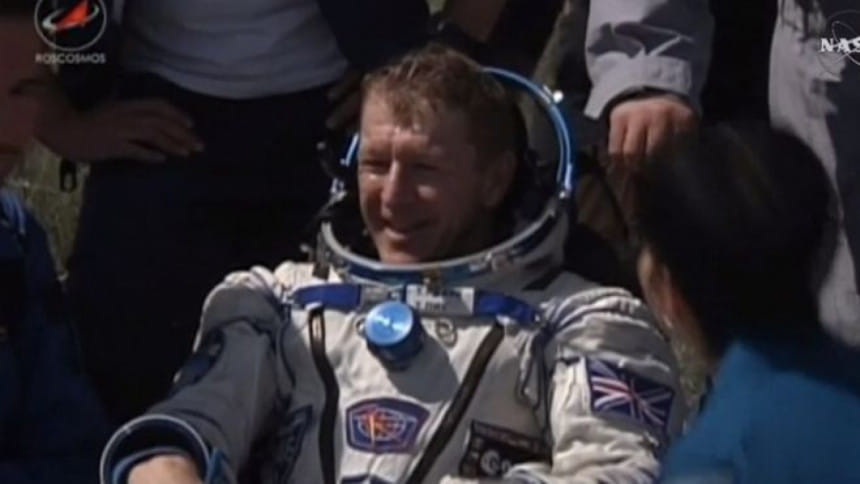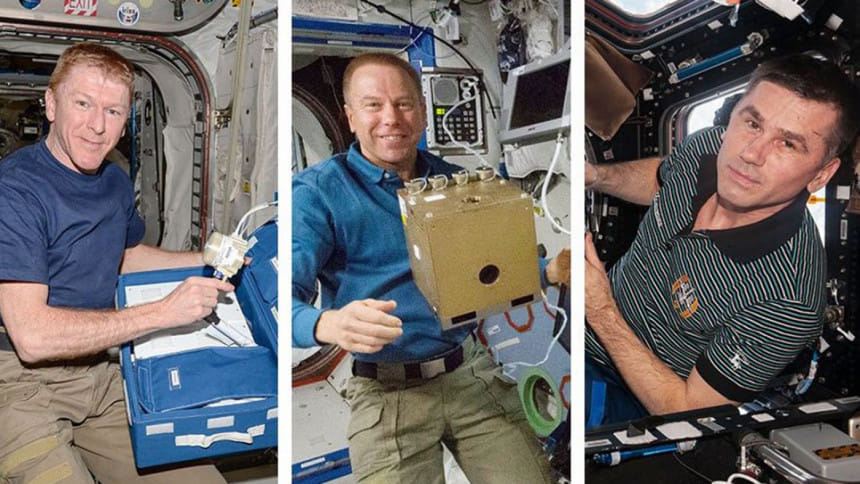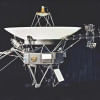UK astronaut Tim Peake returns to Earth

UK astronaut Tim Peake is back on Earth after a historic six-month stay on the International Space Station.
A Soyuz capsule carrying Major Peake and two other crew members touched down in Kazakhstan at 10:15 BST.
He called the journey back "the best ride I've been on ever", adding: "The smells of Earth are just so strong".
Maj Peake is the first person to fly to space under the UK banner since Helen Sharman in 1991 and made the first spacewalk by a UK astronaut.
During the 186-day mission mission, Maj Peake also remotely steered a robot on Earth and ran the London Marathon.
Unique view shows #Soyuz spacecraft departing the station with moon in the background. https://t.co/g3EpFqzaEk
— Intl. Space Station (@Space_Station) June 18, 2016
His mission has taken him on about 3,000 orbits of Earth, covering a distance of about 125 million km.
Asked how he felt after landing, Maj Peake said: "Truly elated, the smells of Earth are just so strong, just so good to be back on Earth. I'll look forward to seeing the family."
The spacecraft turned over several times after it landed relatively hard due to the wind speed on the Kazakh steppe. An official from Russia's Yuri Gagarin training centre said this was why they looked "a little green" after coming out of the capsule.
.@Space_Station crew members are successfully on their way home. Watch landing at 4am ET: https://t.co/ws7AQi38ah pic.twitter.com/LOiQtnQE2O
— NASA (@NASA) June 18, 2016
"It is going to be quite tricky for me to adapt. It's probably going to take me two or three days before I feel well," Maj Peake said in his last news conference before the return.
"It will take me several months before my body fully recovers in terms of bone density. And it will be interesting to see any lasting changes to eyesight etc."
"But generally speaking in two or three days I should be fairly comfortable back on Earth."
In 2009, Maj Peake was chosen from a pool of 8,000 applicants to join the European Space Agency (Esa) astronaut training programme, along with five other recruits.
"He's done an amazing job," said the agency's director of human spaceflight, Dr David Parker. "He's exceeded all expectations, certainly in terms of the impact that he's had back in the UK."
On Friday, Colonel Tim Kopra handed over command of the ISS to his Nasa colleague Jeff Williams.
At about 03:35 BST on Saturday, Maj Peake, Russian cosmonaut Yuri Malenchenko and Col Kopra made their farewells and entered the Russian Soyuz TMA-19M space capsule to return home from the International Space Station.
After undocking at 06:53 BST, the Soyuz performed two separation burns to distance the spacecraft from the orbiting outpost.

The vehicle then fired its engines again at 09:22 for a duration of four-and-a-half minutes to begin the re-entry through the atmosphere.
Screaming towards Earth at 25 times the speed of sound, the Soyuz was enveloped in a fiery ball of superheated plasma. During this phase, the crew members inside can be subjected to forces of about 5Gs - a level at which some people pass out.
As it neared the ground, the capsule deployed its parachutes to slow the descent, firing engines to cushion its landing on the steppe, near the Kazakh city of Dzhezkazgan at 10:15 BST.
After medical checks, Maj Peake will be flown from Karagandy airport on a Nasa gulfstream jet to Norway, and then on to Cologne, Germany, where the European Astronaut Centre is based.
Dr Simon Evetts, from the UK's Harwell Science and Innovation Campus, said: "During re-entry, Tim will undergo significant strain on his body and will also feel the effects of his landmark mission for weeks to come.
"Upon arrival, Tim will feel weaker due to muscle loss and reduced cardiovascular fitness, and will feel heavy in Earth's gravity."
On 15 January this year, just a month after arriving at the station, Maj Peake participated in the first spacewalk for a UK astronaut. He and Tim Kopra set out to change a faulty component on the outside of the ISS, along with other tasks.
They completed the primary goal, but the walk had to be called off early when water began to leak into Col Kopra's helmet - a matter that is still under investigation.
In April, he secured himself to a treadmill on the ISS to run the distance of the London Marathon, completing the event in three hours, 35 minutes.
He also participated in a programme of experiments in medical science, radiation physics and materials.

 For all latest news, follow The Daily Star's Google News channel.
For all latest news, follow The Daily Star's Google News channel. 








Comments